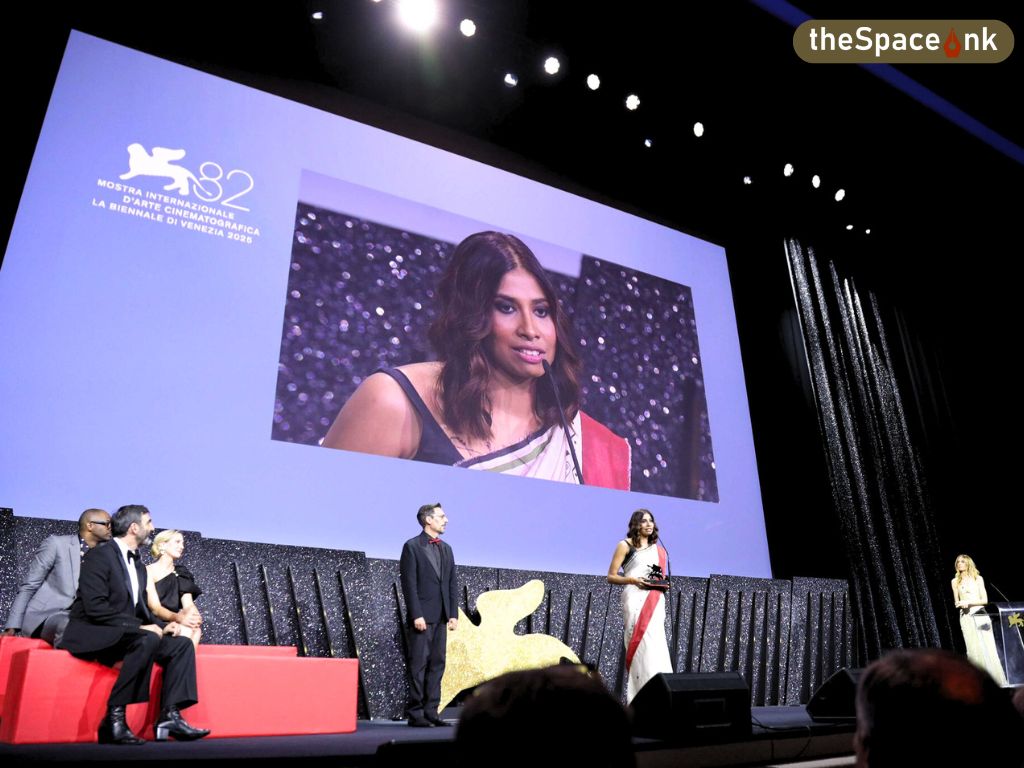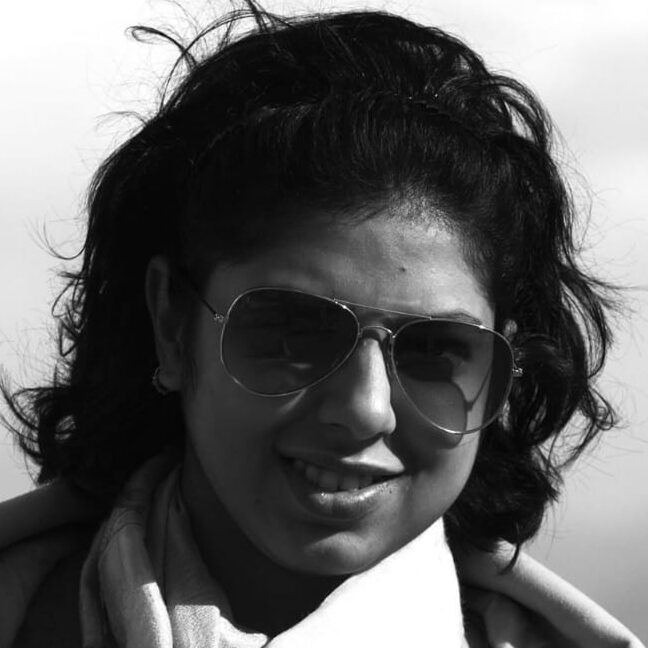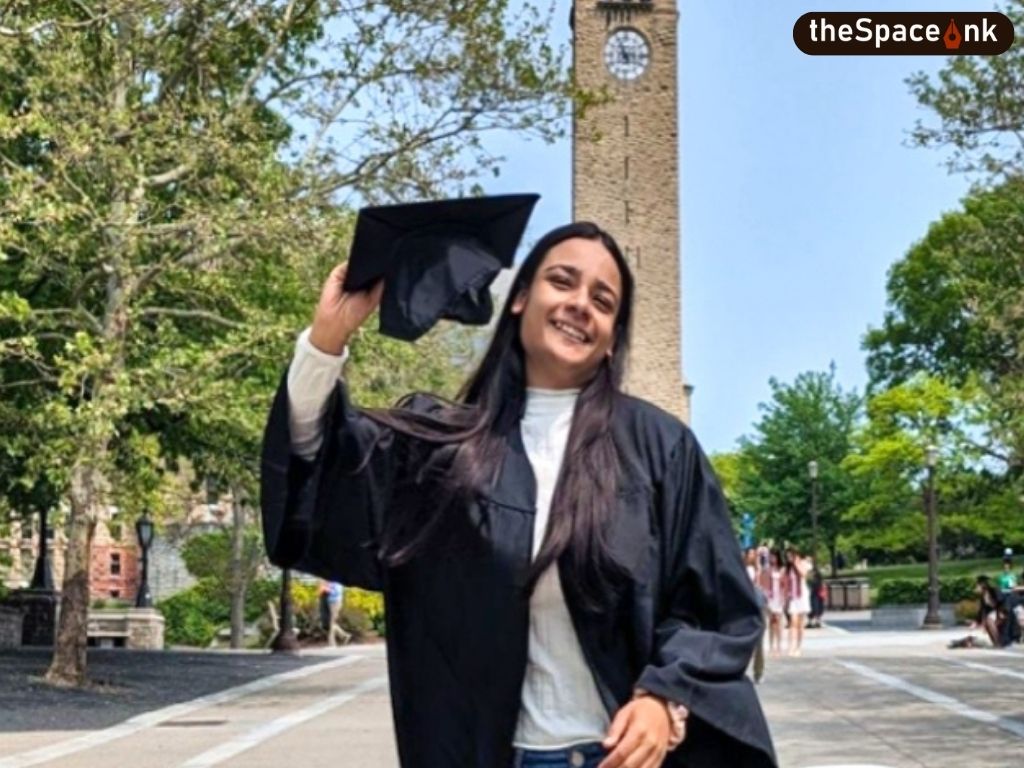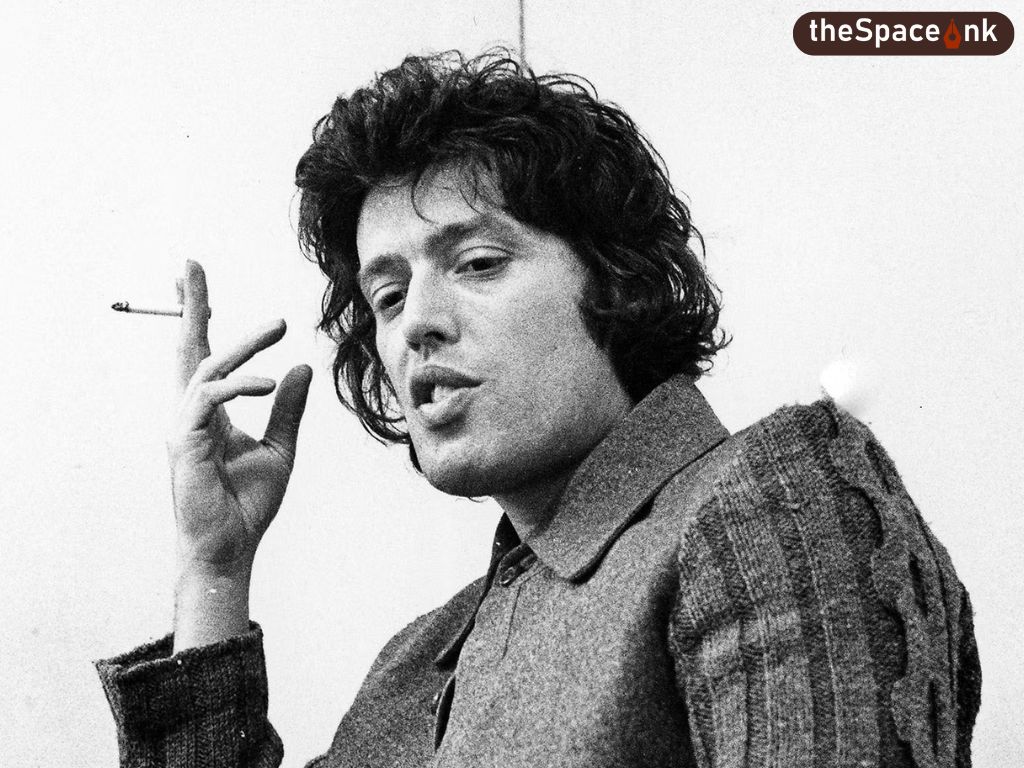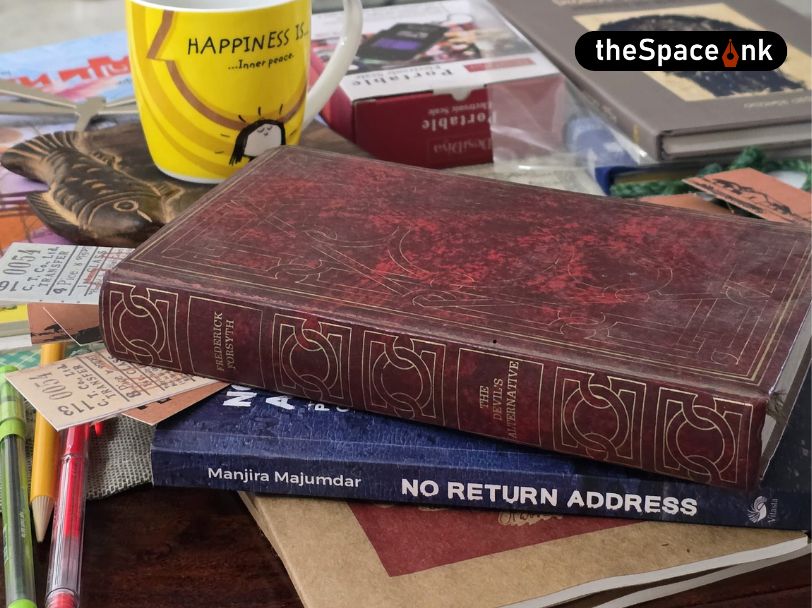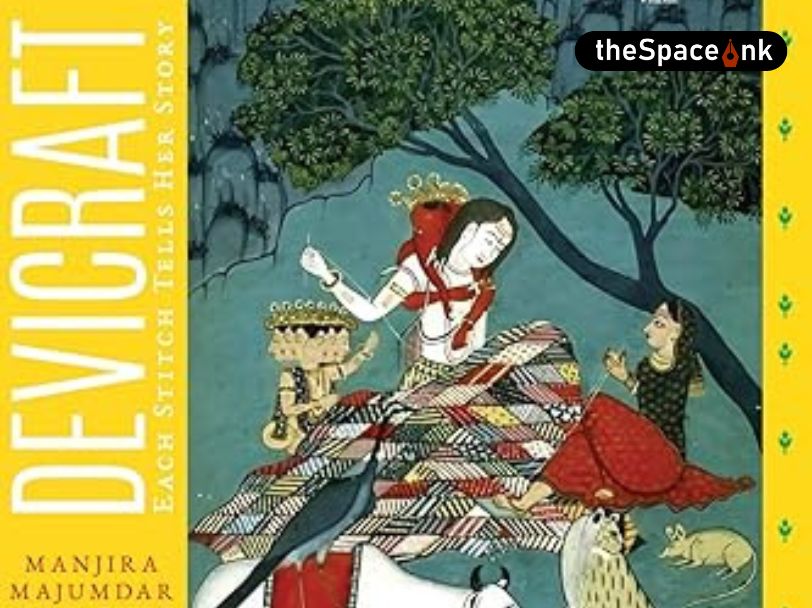(Anuparna Roy)
The film ‘Songs of Forgotten Trees’ has created a buzz worldwide, having premiered in the Orizzonti Competition section of the 82nd Venice International Film Festival. This film was the only Indian entry in the Orizzonti segment that highlights debut works, lesser-known films, new ideas and Indie voices. And its creator, filmmaker and writer, Anuparna Roy took the best director award for her labour of love, that she co-produced with Navin Shetty, Bibhanshu Rai, Romil Modi and Ranjan Singh. This historic win makes her the first Indian woman to receive the prestigious Orizzonti award for best director.
The film ‘Songs of Forgotten Trees’ explores the relationship between two working migrant women residing in Mumbai. The characters Thooya and Shweta are essayed by Naaz Shaikh and Sumi Baghel. One of them is a part-time sex worker who sublets her sugar daddy’s upscale apartment to a woman working in a call centre. A tender platonic relationship develops between them over time. So, this film which is deeply personal to her address marginality, longing, undercurrent of same sex desire and survival. To describe her film she says, “I hold a pen not to craft happy endings, but to tell of miseries, of wounds that linger, of life as it unfolds in a third-world country”.
Also Read: Devicraft Each Stitch Tells Her Story…by a woman for the women!
Anuparna’s raw talent got the attention of filmmaker Anurag Kashyap, who supported her throughout the entire production process, of a film that was shaped by her personal experiences. Through ‘Songs of Forgotten Trees’ she not only gave voice to the marginalized sections of the society, but strongly spoke about female agency. It was the women in her life, her childhood and growing up years in Narayanpur village in Purulia and finally shifting to Mumbai that shaped this film which has taken the world by the storm.
Her debut short film ‘Run to the River’ also received critical acclaim from leading Indian reviewers and regional media, apart from winning several awards in national and international film festivals. ‘Run to the River’ got recognition at the 17th Cheboksary International Film Festival, Gange Sur Seine, 21st Stuttgart Indian Film Festival, 25th Rainbow International Film Festival (Winner), 29th Portobello International Film Festival, New Wave Short Film Festival Kerala, 4th Bogura International Film Festival (Bangladesh), and Moviepedia at IIM, Rohtak. The film also won Best Short Film at Sthree Film Festival, Chennai, and was screened by acclaimed documentary filmmaker Anand Patwardhan in Mumbai. She also assisted in several short films before venturing out to write and direct herself. (Anuparna Roy)

As a published writer too, she speaks her heart about issues faced by those living in the fringes of society. Her article on the rights of minorities, lives of Bay of Bengal refugees and aftermath of NRC (National Register of Citizens) were featured in WION. (Anuparna Roy)
Space Ink delves into the mind of Anuparna Roy to discover her journey that nudged her to make films emphasising on the struggles and desires of the unsung section of the society and female agency with such passion and empathy. (Anuparna Roy)
“Definitely the reference of Jhuma Nath (my childhood friend with whom I lost touch for she was married off at age of 13) and my grandmother’s relationship with her step daughter shaped the film.”
TheSpaceink: How did you come up with the idea for this film?
AR: As I have already mentioned, my grandmother had a child marriage to a thirty-year-old man, my grandfather. As soon as she entered her new house, she discovered that she had a step daughter who is of same age as hers. But they bonded well and I have seen them running the family without my grandfather after he passed away. With four girl children, both of them handled the family without any male. And that gave me hope thinking, is it possible to run a family without a man? I overimagined it and thought to develop something that would talk about women and their intimacy. That is how this idea came about. (Anuparna Roy)

TheSpaceink: Did experiences from your own life shape the story in any way?
AR: Definitely the reference of Jhuma Nath (my childhood friend with whom I lost touch for she was married off at age of 13) and my grandmother’s relationship with her step daughter shaped the film. The seed started from my grandmother’s relationship with her step daughter which was platonic and definitely sisterhood. (Anuparna Roy)
I sort of imagined their relationship that way and liked it, and it led me to think that way. And obviously the reference of Jhuma Nath, who was my childhood friend, and the way our friendship was abandoned by my father- that guilt stayed with me. The film carries her memory in bits and pieces, and a reference to her is there in the Hollong trees. Those trees are called the forgotten trees. (Anuparna Roy)
“Navin Shetty did a lot for the film, he colour graded the film and helped us with the DCP. And it’s not the first time Navin Shetty is helping Indie filmmakers. He has been helping indie filmmakers from so long, from a decade or more than a decade.”
TheSpaceink: You have assisted on different film sets, and your first film also received critical acclaim—did those past experiences help while making this one?
AR: Definitely experiences always adds on and I have assisted in short films. I am a terrible AD. The first film taught me a lot as a director, I came to know of a lot of things, such as how to handle actors, set, production and everything. It was not a role of a director but a role of a team member trying to put her effort all together along with other team members. This is how it happened. (Anuparna Roy)
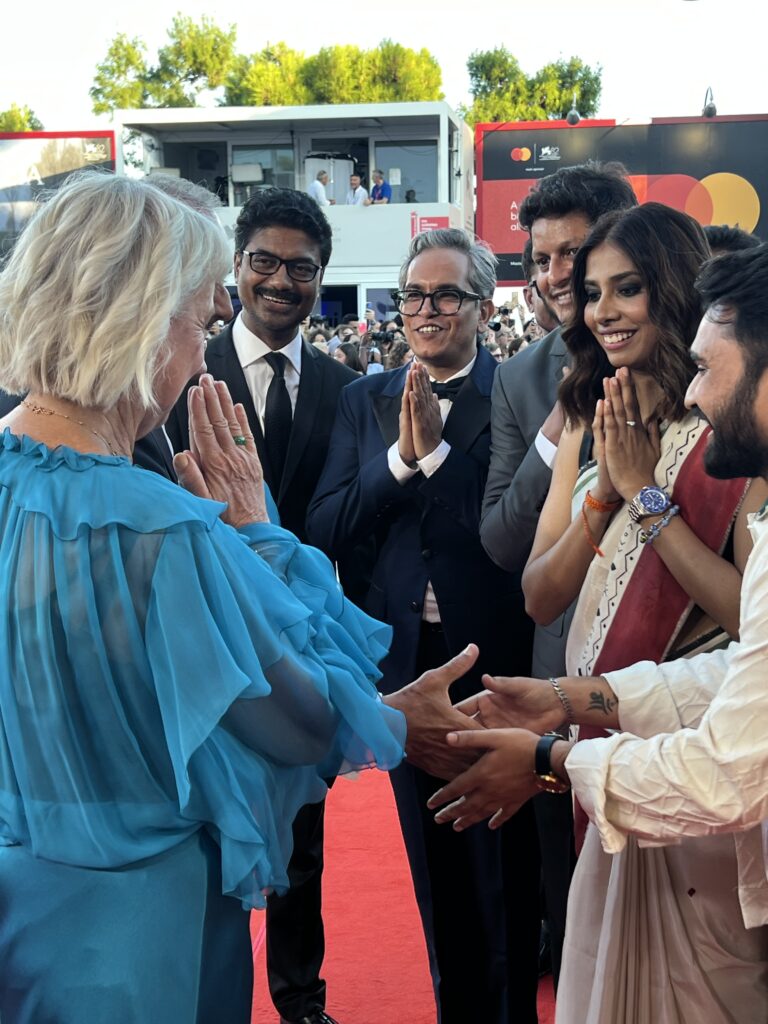
TheSpaceink: Who were the key people who supported you in bringing this film to life?
AR: As I have already mentioned, the key people are three of my producers Bibhanshu Rai, Romil Modi and Ranjan Singh. These are the people who have helped me to shoot the film not only as producers but as friends. At the same time team members of mine, Debjit Samantha, the great DOP and Ashish Patel who stayed inside the apartment for one and a half years to edit the film and Sakhadev Chaudhuri who is the second schedule DOP were amazing. And then there was Gaffer who is 80 years old and Navin Shetty.
“I don’t have any such big creative process, but definitely I do take a lot of time thinking about the story before writing.”
Navin Shetty did a lot for the film, he colour graded the film and helped us with the DCP. And it’s not the first time Navin Shetty is helping Indie filmmakers. He has been helping indie filmmakers from so long, from a decade or more than a decade. I want to mention two more names, Vikas Kumar and Sharif Khan, as they sort of inspired me, they joined as co producers and the journey has been amazing you see. So, I believe these are the people. And then obviously my family, my mother was always there. My father never directly denied, he started coexisting with the dreams of mine. (Anuparna Roy)
And obviously Anurag Sir, the moment he onboarded on August 20, 2025, he helped us with a lot of advices which are very much helpful in taking the film ahead. Ranjan sir for me is not just the producer but a guardian. He always knows the next move and therefore showed us the path. So yeah, these are the people who helped me shape the film. (Anuparna Roy)
Also Read: An Interview with Ramkamal Mukherjee on Films and Noti Binodini
TheSpaceink: Walk us through your creative process.
AR: I don’t have any such big creative process, but definitely I do take a lot of time thinking about the story before writing. You know I read a lot and try to understand a lot of perspectives. I try to get my motivation from here and there. And definitely I retreat my life a lot. That one thing is there and the second thing, I don’t believe in having a strict script. I make changes then and there inside the set. (Anuparna Roy)
If through instinct I feel the situation is not going with the dialogues or the dialogues is not going with the actor, I don’t believe in repeating the same written dialogues. I can definitely modify according to them. So, during the time of shooting the ‘Songs of Forgotten Trees’ I had only fifty scenes with me. (Anuparna Roy)
“The other challenge was that there would be a lot of camera movement inside the apartment, so Debjit and I decided that we won’t go for structural mid wide and close type of shots as there would be a lot of camera movement inside the apartment.”
Therefore, when Ashish was editing the film, I sat with him and went through A to Z of the film and made changes in the narrative there and then. Therefore, I can’t say I have a particular creative process but believe in modifications a lot. For instance, while shooting ‘Songs of Forgotten Trees’ I had to modify certain scenes as there were restrictions shooting in some public areas as we could not hire every location. (Anuparna Roy)
Therefore, I had to figure that out and make changes. So, I believe in the process while on the set very much. And that is how I do things, so I don’t have a full script. I believe I will let my actors do their own first, that is the process. (Anuparna Roy)
TheSpaceink: Did you face any challenges while making the film, and how did you overcome them?
AR: I mean yeah, I faced a lot of challenges like a random director does while shooting in Mumbai or inside India or outside India even. So, we had not informed the society that we would be shooting inside the apartment. So that was the first challenge, so we were secretly shooting the whole film.
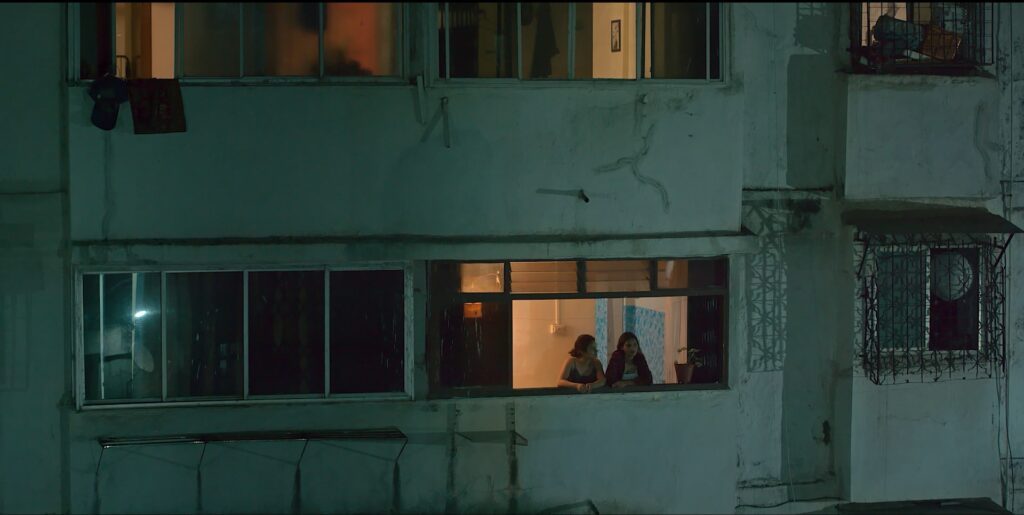
The other challenge was that there would be a lot of camera movement inside the apartment, so Debjit and I decided that we won’t go for structural mid wide and close type of shots as there would be a lot of camera movement inside the apartment. And since it was a small cramped up apartment, we could not move the camera very much. Also, the camera was very new to us and very heavy.
It was a Panasonic SH that was tough to carry around, but Debjit did a marvellous job. We were shooting in 6K and had less hard drives, and the data size was very big, so these were the technical issues we faced. But we managed to do it well, and we are here. (Anuparna Roy)
“I think I have grown as a filmmaker, but it is not the kind of growth I am having. I am talking about the recognition and everything else. I am talking about the internal growth as a writer and director. I think there is a long way to go, a lot to learn, a lot to unlearn.”
TheSpaceink: Can you share a memorable anecdote from the shoot?
AR: I mean the most memorable or the best memory from the shoot would be the bathroom scene. So basically, there is a long take shot inside the film where the two women is about to express. I don’t want to give any spoiler to the people, but you know it is very intimate scene. It is a very romantic and emotional scene. And the moment both actors did their part I had to say cut but I couldn’t. I let the shot go on for more than 5…6 minutes. I let the actors play with each other and do whatever they wanted.
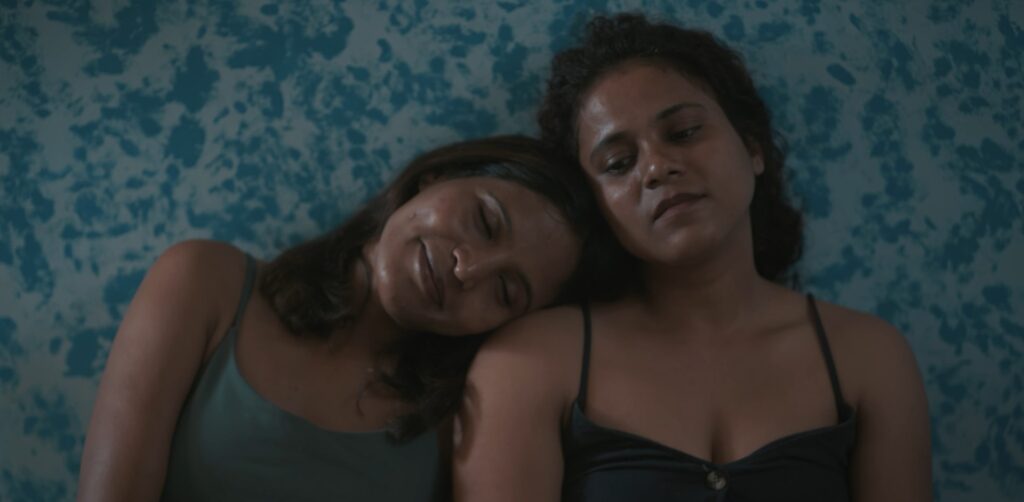
I mean that memory stuck with me. And definitely the last day of the shoot, when we were outside of the apartment for the very first time. We went to the sea beach. We were all very emotional because we knew from the next day, we are not going to see each other, and you know the process will not be happening again, and the shoot is over. So that was a very emotional moment for me, I’d say. (Anuparna Roy)
TheSpaceink: This is your second film as a writer and director—how have you grown as a filmmaker since your debut?
AR: I mean, yeah, I think I have grown as a filmmaker, but it is not the kind of growth I am having. I am talking about the recognition and everything else. I am talking about the internal growth as a writer and director. I think there is a long way to go, a lot to learn, a lot to unlearn. So, I am a young filmmaker and this is my debut feature film. So, I think I need to learn a lot pf things and I am waiting for such experiences which will give me more strength as a filmmaker. (Anuparna Roy)
Also Read: Translation: Interview with Mitra Phukan
TheSpaceink: As a filmmaker and writer, who have been your biggest influences?
AR: I don’t know if I mentioned this or not, I love Iranian films. I like Jafar Fanahi and I like Zia Zanki, the Asian filmmaker. I like the kind of realism they have used inside the film. I like Ritwik Ghatak and Satyajit Ray, obviously one cannot overlook. And if I talk about films, some of the films that never went away from my mind are – ‘Close’, ‘Hot Milk’, ‘Manta Ray’, ‘Steel Life’ and then ‘Roma’. These are the films that stayed with me and taught me a lot. I love all of them and watch them again and again. (Anuparna Roy)
TheSpaceink: How are you feeling about the film’s wonderful critical reception? What was your first reaction when you heard about winning this award?
AR: I mean, yeah, you know, the moment I received the award it was definitely surprising for me. I mean they told me that you gonna receive something, as is the ritual to let filmmakers know eight hours before. But they didn’t tell me in which category I am gonna receive this award. Neither did they tell me what the award was about. They just told me that you have to attend the ceremony because there is this award involved and you gonna receive an award. I think it was a bit surprising for me as it was very much unpredictable. And I actually believe in unpredictability a lot and I love to be, you know, in doubts. (Anuparna Roy)
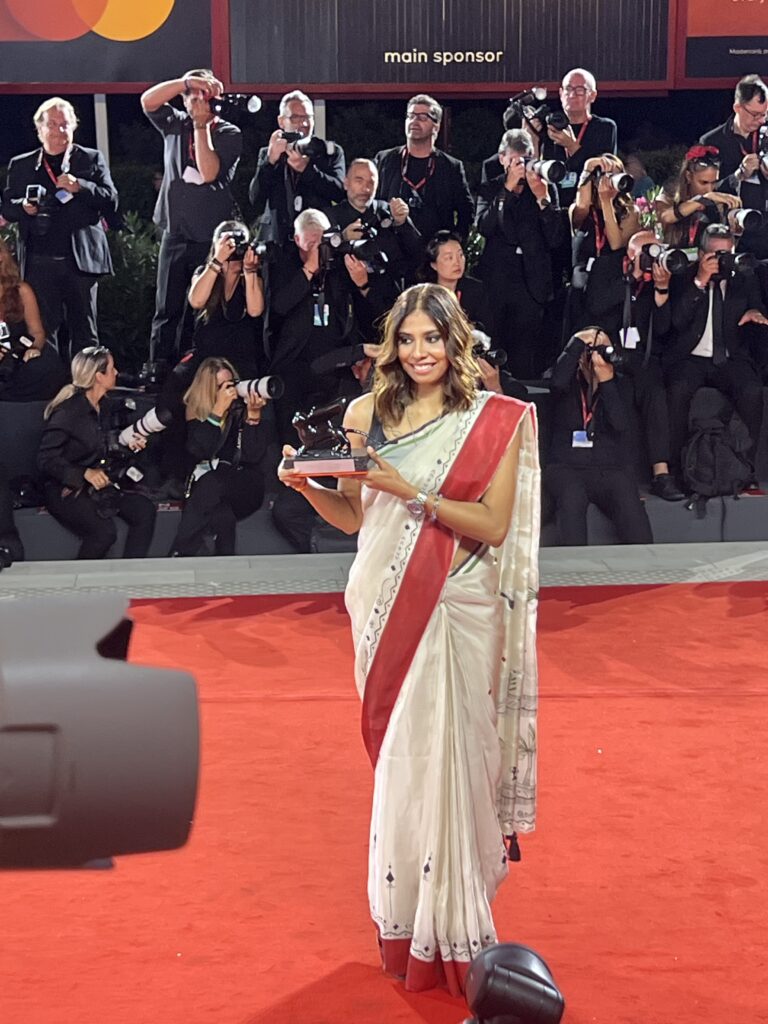
So, I mean it was amazing to receive an award at such a big platform which is in Venice. And the first thing that came to my mind was, you know, I have to thank all the team members because they did a lot and without them, I couldn’t be here. I was sort of, you know, I was emotional. I was expecting my whole team to be there, and we tried to take all of them, but some of them couldn’t manage it. And so, we were thrilled to be present there together, holding the award. I mean then it is definitely bringing a lot of responsibility. (Anuparna Roy)
“Now I am more scared what gonna happen in my next film. That fear always stays after the first film, the first short film of mine. So that fear is something I really like.”
You know now I am in pressure. Now I am more scared what gonna happen in my next film. That fear always stays after the first film, the first short film of mine. So that fear is something I really like. So, there is nothing to worry about. But yeah, I mean, everything came during the time of receiving the award. It was a mixed feeling. (Anuparna Roy)
TheSpaceink: As a writer and filmmaker, how do you envisage contributing to an India that is more gender-fluid and accepting of diverse voices beyond the city perimeters?
AR: I don’t think so, you know, as a film maker, I can contribute to the society very much because it’s a very privileged profession, that we can make films, and we can portray experiences. We can even portray the society as it is, but I don’t think so that we can, you know, bring change changes inside the society. I mean, definitely there’s a responsibility to, you know, showcase the reality of the society, but I doubt that I can bring any changes or any filmmaker can bring changes inside the society by their films.
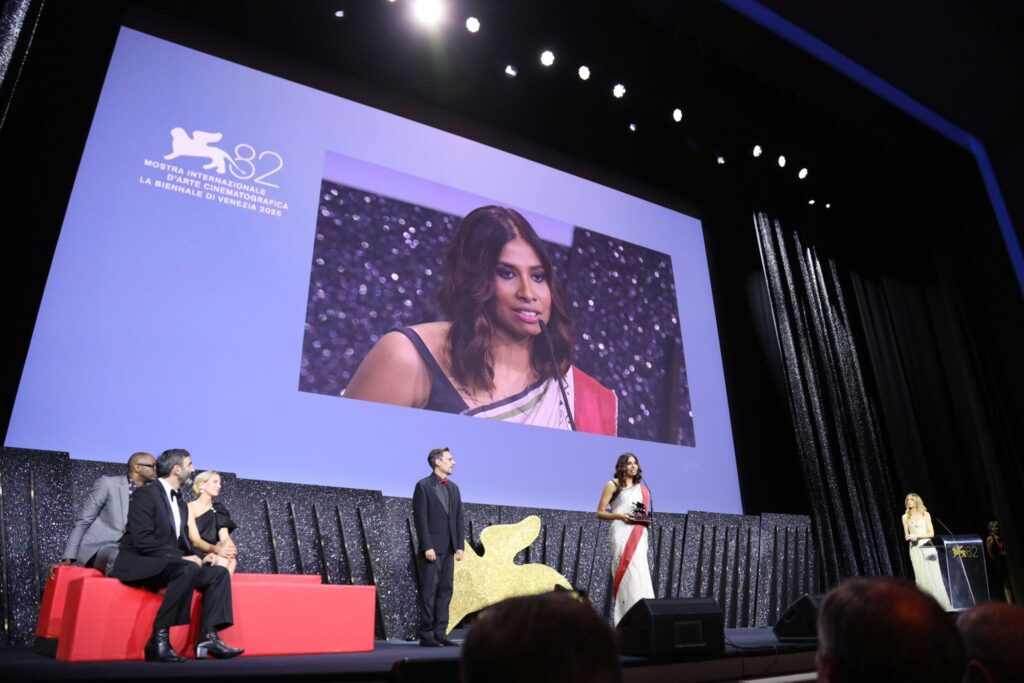
I mean, if that happens, then I’ll be the happiest one, you know. But then definitely there’s a, struggle of every filmmaker who somehow try, you know, likes to believe in the same. But I’ll be honest with you, it’s I don’t think so.
But yeah, my film will be definitely around the sort of experiences I have been through earlier or I am going through right now, or my relatives went through whatever it is. I mean everything will be summed up inside my next film or upcoming projects. I mean we cannot ignore the society. That is one thing. (Anuparna Roy)
“I don’t think I’m in a position of advising anything at this moment. But one thing I would love to say that you know, do dream big and make films. If you want to make films, just make it.”
TheSpaceink: What would be your message to upcoming indie filmmakers?
AR: I don’t think I’m in a position of advising anything at this moment. But one thing I would love to say that you know, do dream big and make films. If you want to make films, just make it. If you want to write, just write it. If you want to direct, just direct it. So, I think that’s that. That will be the advice. (Anuparna Roy)
Also Read: From Critiquing to Directing Films: In Conversation with Pratim D. Gupta
TheSpaceink: And finally, what are your plans going forward?
AR: Going forward, my plans are nothing but to make another film and to talk what I wanted to talk for so long, to write, which I wanted to write for so long. And like my sort of things, I direct what I write basically. So, I want to write and I want to direct again. So, this is my current plan. (Anuparna Roy)
Image Courtesy: Get Bengal, Songsofforgottentrees.com, Youtube, News X, Instagram
Surela Chakraborty is a freelance writer by profession and passion. Her works have been published in several print and digital media. She also loves to dabble with poetry, dance and music. As an avid traveler she seeks adventure and believes to live life that is bold and different. Nature, human emotions and life experiences inspire the poet in her.


